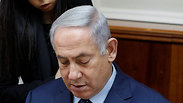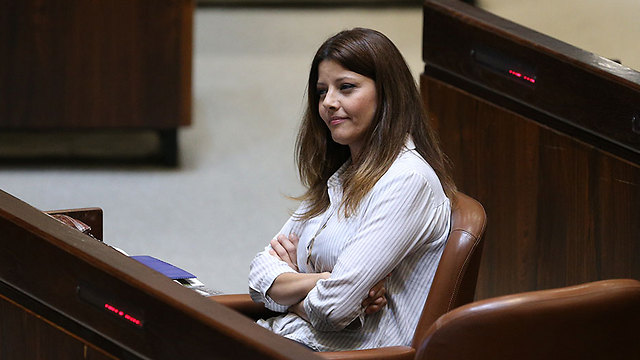
If the elections are held in September, it will be good timing for her. If they are only held next year, her appearance was premature. These “kiosk parties,” which attract passersby and voters who have trouble going all the way from one camp to another, should be born shortly before elections.
Levy-Abekasis is located in the vague domain known as the political center. She isn’t appealing to leftists. She is supposed to take votes from Likud, Moshe Kahlon, Yair Lapid and the nonpartisans. She is focusing on the periphery. When you say you want more funds for the periphery, you should say less funds for the settlements. She isn’t saying the second part of the sentence, although she did vote against the Regulation Law.
Levy-Abekasis is a perfect match for former Defense Minister Moshe (Bogie) Ya’alon. He can’t jump over the election threshold on his own, and she needs a security figure. One of them will have to swallow their pride for a change and agree to be the other’s No. 2.
People here often talk about social politicians and social parties. They can talk all their like about those politicians and those parties. In militarist Israel, however, the security component is a critical, decisive factor in the voter’s decision.
To be more exact, it’s not the security component but rather the security display. Prime Minister Benjamin Netanyahu is the golden evidence of this thesis. You won’t find a single speech, on any issue, in which he failed to mention “the Israeli citizens’ security” or “the state’s security.” And if possible, he also mentions his past in Sayeret Matkal elite unit, as well as “my brother Yoni,” if he can get away with it.
There is no way of knowing how many Knesset seats Yesh Atid would have gained with Yair Lapid’s sex appeal and his presence in the media and in the public opinion, if he hadn’t included on his list figures like former Shin Bet Director Yaakov Peri, former paratroopers officer Ofer Shelach, who was wounded in the Lebanon War, and Major-General Mickey Levy, who was the Jerusalem Police District commander in the early 2000s, when the capital was rocked by major suicide bombings. And then, in the second round, Major-General (res.) Elazar Stern. And in the next round, for now, Ram Ben-Barak from the Mossad.
If we look 40 years back, we’ll see that the new parties which popped up and succeeded were populated by security figures. The Democratic Movement for Change (Dash) was led by former Chief of Staff Yigael Yadin and another former army chief, Haim Laskov, and Major-Generals Meir Amit, Meir Zorea and Dan Tolkowsky. There was Tzomet, which was established by former Chief of Staff Rafael (“Raful”) Eitan, and there was the Center Party with former Chief of Staff Amnon Lipkin-Shahak and Major-General Yitzhak Mordechai. And even the Pensioners’ Party, with former intelligence officer Rafi Eitan.
Levy-Abekasis’ power of attraction has less to do with her being a woman, and more to do with the fact that it’s a new party. The Zionist Union party, for example, has many women of high-quality, excellent parliamentarians: Shelly Yachimovich, Merav Michaeli, Stav Shaffir, Revital Swid.
If a prime ministerial candidate were chosen by a search committee, Tzipi Livni would top the list. There aren’t many candidates today with Livni’s diverse public experience. She served as acting prime minister, foreign minister and justice minister, as well as in several other ministries. She held regional and international peace negotiations, was a member of war cabinets—in the Second Lebanon War, in Operation Cast Lead, in Operation Protective Edge—and was part of the three-member forum that decided to attack the nuclear reactor in Syria. The state comptroller’s report on Operation Protective Edge praised her input in the management of the battle and mainly her demand for a diplomatic move at the end of the battle. Political life, life in general, isn’t perfect, and imaginary scenarios are created for the purpose of journalistic and academic amusement.
There is no way of knowing when the elections will be held and what the final Knesset lists will look like. But the next day, we’ll likely see the formation of a rightist-centrist group—including Naftali Bennett, Avigdor Lieberman, Kahlon, Levy-Abekasis and Ya’alon—which will have trouble entering a coalition with the Zionist Union and Meretz. When that happens, they will offer the rule to Likud, as long as Likud replaces Netanyahu. This is what senior Likud members are hoping for. This is what Netanyahu is afraid of.
Amnon Abramovich is an Israel Television News Company commentator.


















